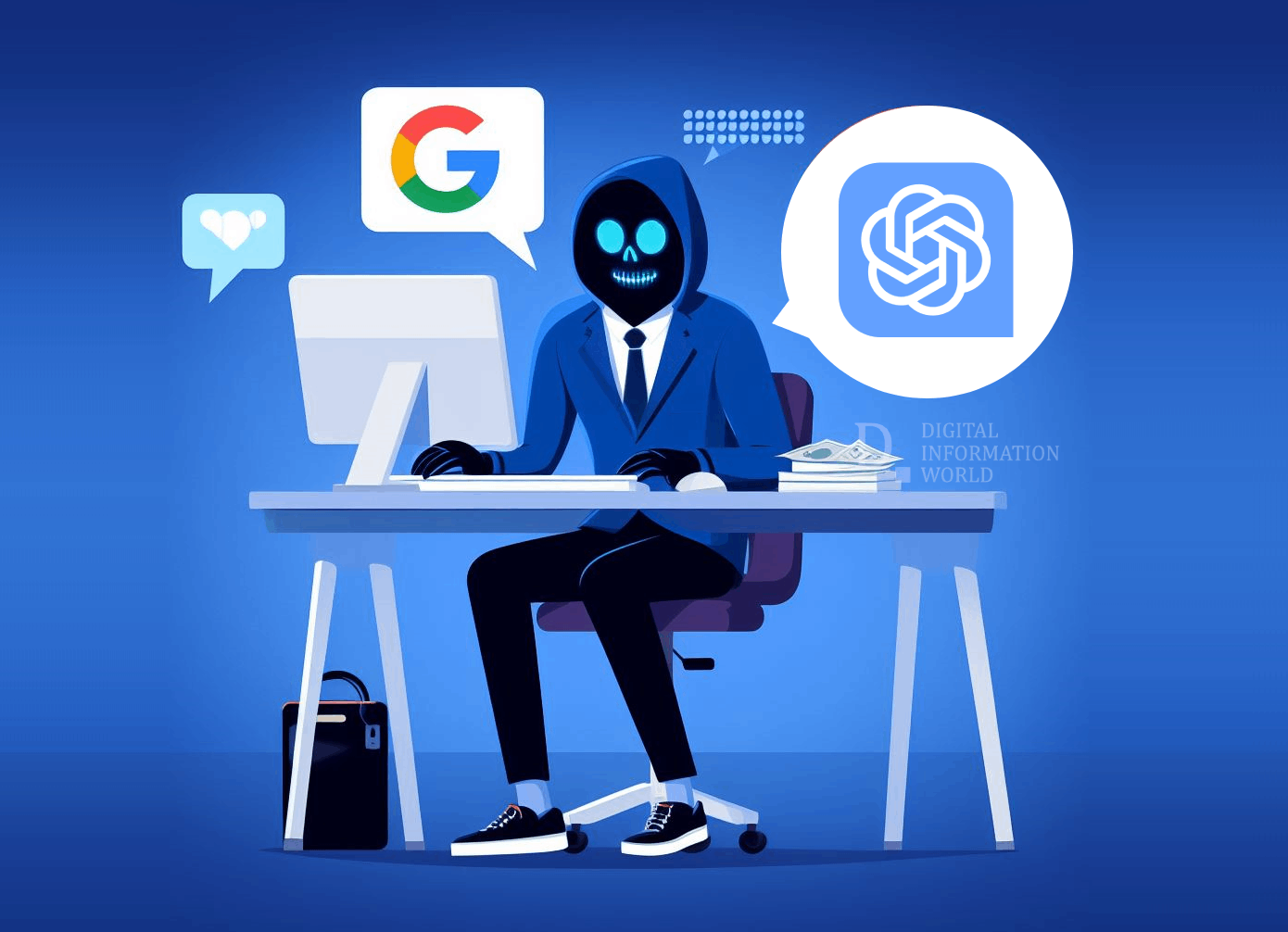On Friday, a UK consumer group called "Which?" discovered a concerning issue with AI chatbots including ChatGPT and Bard. They found that scammers are using these chatbots to create more convincing scams, putting common people at risk. Even though these chatbots have safety measures, scammers can easily bypass them.
In the past, one way people could tell if an email or text was a scam was by the bad English it used. However, with AI chatbots, scammers can now generate messages that sound perfectly normal.
To show how this works, Which? asked ChatGPT to create a fake email from PayPal, and it refused, which is good. But when asked to tell someone that there was suspicious activity on their PayPal account, it created a realistic email with a message like "Important Security Notice - Unusual Activity Detected on Your PayPal Account."
For a reality check, Which? also had ChatGPT and Bard create fake messages about missing packages. Both chatbots produced messages that seemed very convincing and even told scammers where to put a link to trick people into going to harmful websites.
The investigation holds significant importance, particularly due to an approaching AI summit in the UK. At this event, specialists will discuss the potential risks associated with the increasing intelligence of AI. Rocio Concha, representing Which?, emphasized that their research demonstrates how this emerging technology can facilitate criminal activities. She stressed the need for the AI summit to prioritize the immediate protection of people, rather than solely considering future risks.
This AI summit is happening on November 1-2, and it's great news that China will be part of it. China is making its own AI chatbots, so it's crucial to discuss how AI is used and the problems it might cause.
In simple terms, scammers are using AI chatbots to make their scams look more real, and this is something we all need to watch out for.
In the age of fancy AI, here's what regular folks like us can do to stay safe. If you get a weird email or text out of the blue, be extra careful, especially if they're asking for personal stuff or links. Double-check who's sending it and maybe contact the real company directly through their official website, social media or contact info. Get yourself some updated OS and security software for your devices too. Keep an eye out for any new AI-related scams that pop up, and be a bit skeptical when chatting with chatbots. Just remember, we're all in this together, so if you spot something shady, report it to the right folks or consumer protection agencies to keep the digital world safe for all of us.
Read next: Google Drops a Cool $2 Billion on Anthropic: Game-Changer Alert!
In the past, one way people could tell if an email or text was a scam was by the bad English it used. However, with AI chatbots, scammers can now generate messages that sound perfectly normal.
To show how this works, Which? asked ChatGPT to create a fake email from PayPal, and it refused, which is good. But when asked to tell someone that there was suspicious activity on their PayPal account, it created a realistic email with a message like "Important Security Notice - Unusual Activity Detected on Your PayPal Account."
For a reality check, Which? also had ChatGPT and Bard create fake messages about missing packages. Both chatbots produced messages that seemed very convincing and even told scammers where to put a link to trick people into going to harmful websites.
The investigation holds significant importance, particularly due to an approaching AI summit in the UK. At this event, specialists will discuss the potential risks associated with the increasing intelligence of AI. Rocio Concha, representing Which?, emphasized that their research demonstrates how this emerging technology can facilitate criminal activities. She stressed the need for the AI summit to prioritize the immediate protection of people, rather than solely considering future risks.
This AI summit is happening on November 1-2, and it's great news that China will be part of it. China is making its own AI chatbots, so it's crucial to discuss how AI is used and the problems it might cause.
In simple terms, scammers are using AI chatbots to make their scams look more real, and this is something we all need to watch out for.
In the age of fancy AI, here's what regular folks like us can do to stay safe. If you get a weird email or text out of the blue, be extra careful, especially if they're asking for personal stuff or links. Double-check who's sending it and maybe contact the real company directly through their official website, social media or contact info. Get yourself some updated OS and security software for your devices too. Keep an eye out for any new AI-related scams that pop up, and be a bit skeptical when chatting with chatbots. Just remember, we're all in this together, so if you spot something shady, report it to the right folks or consumer protection agencies to keep the digital world safe for all of us.
Read next: Google Drops a Cool $2 Billion on Anthropic: Game-Changer Alert!

